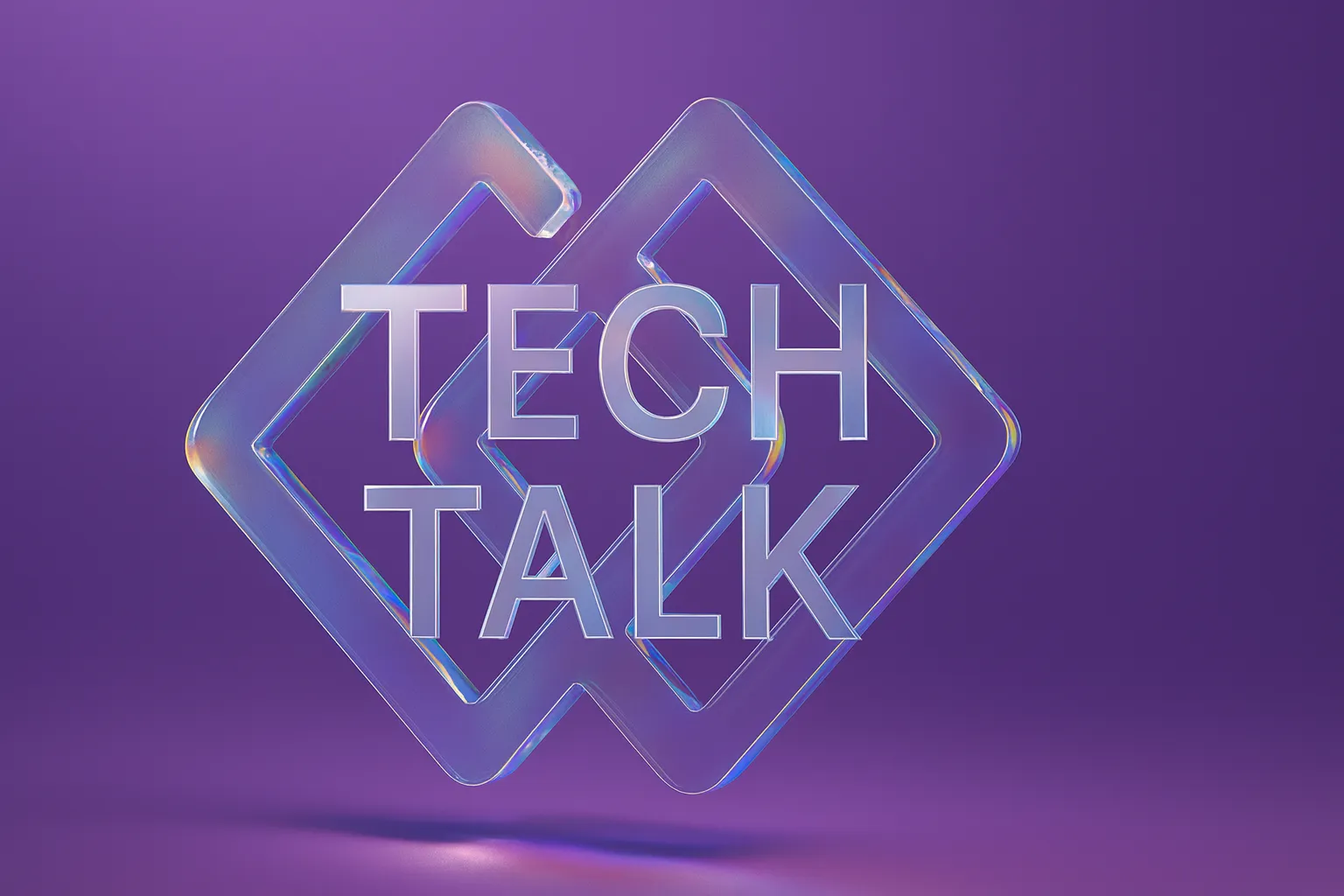Due diligence is the backbone of any successful private equity deal, but without the right AI-driven data infrastructure, it often becomes a time-consuming bottleneck. Investment teams frequently struggle with fragmented data sources, making it difficult to extract actionable insights quickly and stay ahead of competitors.
Instead of focusing on strategic decision-making, organizations spend valuable hours sifting through data—an approach that not only wastes time but also introduces significant risk. Overlooked details can easily turn what seems like a promising deal into a costly mistake.
AI-powered tools and robust data infrastructure provide a structured solution to this challenge. By integrating AI with a solid data infrastructure, private equity firms can turn bottlenecks into opportunities, driving smarter, faster decision-making and gaining a critical edge in the competitive market.
Why Traditional Diligence Tools Fall Short
Legacy diligence processes—no matter how well-intentioned—are fundamentally limited by the tools they rely on. In fast-moving deal environments, static documents, siloed models, and disconnected teams slow down decision-making and introduce avoidable risk.
Below, we break down the key reasons traditional diligence tools can’t keep up—and why forward-thinking firms are rethinking their approach.
1. Static Checklists, Siloed Excel Models, and Fragmented Portals
Traditional diligence relies heavily on static frameworks and disconnected workflows. Analysts often toggle between Excel models, PDF checklists, and cloud dealroom folders—none of which are designed to interoperate or evolve with the deal.
- Checklists are rigid and non-adaptive. They may capture basic requirements, but they don’t account for deal-specific nuances or emerging risk factors.
- Excel models live in departmental silos. Often passed around manually, these models are vulnerable to errors, versioning confusion, and lack of traceability.
- Dealroom platforms act as storage, not intelligence layers. They're repositories—not systems that surface what matters.
This patchwork approach leads to duplication of effort, poor visibility, and major inefficiencies in collaborative review processes.
2. High Risk of Human Error and Lost Institutional Knowledge
Manual diligence introduces operational risk. In high-stakes environments, even small errors can have significant downstream consequences.
- Version control issues: When documents are updated manually or sent over email, it’s easy to lose track of which model or memo is the most current.
- Repetitive work: Analysts often rebuild analyses or frameworks from scratch—even if similar work has been done on prior deals.
- Knowledge fades fast: When a deal team disbands, so does the tacit knowledge gained—leaving no structured way to preserve institutional learning.
The result? Time-consuming work that doesn’t compound—and no clear path to continuous improvement.
3. Lack of Pattern Recognition Across Similar Deals
Most diligence platforms treat each deal as an isolated event. But in reality, firms often repeat the same types of deals, in the same sectors, with the same challenges. Traditional tools aren’t designed to detect or leverage these patterns.
- No memory across deals: You can’t easily reference how you handled a similar situation three transactions ago—or what risks were flagged repeatedly.
- No shared playbook: Learnings from one deal rarely inform the next unless manually codified and redistributed.
- No cumulative intelligence: Over time, firms miss out on a key competitive advantage: the ability to make sharper, faster decisions informed by historical context.
Without a system that learns from your deal history, you're bound to repeat the same research, ask the same questions, and reinvent the wheel.
4. Inability to Scale Consistently Across 50–100 Deals Per Year
For firms handling dozens—or even hundreds—of deals annually, scalability is essential. Unfortunately, traditional diligence tools don’t scale. They create operational bottlenecks instead.
- Teams get stretched thin: Limited bandwidth means critical diligence steps are skipped, rushed, or deprioritized.
- Inconsistency becomes the norm: Without standardized workflows, outcomes vary dramatically depending on which team is assigned.
- Quality assurance is manual and reactive: There's no automated way to surface anomalies or ensure completeness.
This lack of scalability erodes confidence, delays closings, and introduces reputational risk for firms juggling a large deal pipeline.
This is exactly where AI-powered knowledge copilots—like the ones Tribe builds—come in. By transforming how data is ingested, analyzed, and operationalized, they enable diligence teams to work faster, smarter, and with dramatically greater consistency.
How AI Empowers Data-Driven Due Diligence
AI is revolutionizing due diligence in private equity by delivering tangible efficiencies and risk mitigations that transform the way business intelligence is utilized. Instead of relying on traditional, manual processes, AI now accelerates data extraction and analysis, enabling teams to focus on what truly matters: actionable insights and informed decision-making. By integrating multi-modal AI technologies, organizations can process vast volumes of unstructured data quickly and effectively. Here are the key capabilities that AI brings to due diligence:
- Summarizing Vast Volumes of Unstructured Documents: AI accelerates the review of critical documents—such as financial statements, legal contracts, and customer agreements—by automatically summarizing large datasets. This drastically reduces the time spent manually reading and extracting key insights from these documents, enabling teams to focus on analysis rather than gathering data.
- Flagging Anomalies in Financial and Operational Metrics: AI systems continuously analyze financial statements, operational data, and other key metrics to identify discrepancies, unusual trends, or patterns that might signal underlying issues. Whether it's unusual revenue spikes, accounting discrepancies, or operational inefficiencies, AI can pinpoint areas that require further investigation—ensuring faster identification of risks.
- Advanced Peer Benchmarking with AI-Driven Analytics: AI-driven analytics allow firms to compare target companies against a wide range of relevant peers. This capability provides comprehensive insights into competitive positioning, helping investment teams understand where the target company stands relative to industry benchmarks. By leveraging public and private datasets, AI enables firms to quickly assess market positioning and performance metrics.
- Running Q&A with Large Language Models (LLM): AI enhances the due diligence process by enabling intelligent Q&A across vast document repositories, often referred to as data rooms. LLMs (Large Language Models) can instantly sift through thousands of pages to find relevant information, answering specific questions or queries in real time. This provides critical insights in minutes—far faster than manual searches through document databases.
- Extracting Critical KPIs, Churn Metrics, and Cohort Data: AI can automatically extract important key performance indicators (KPIs), churn metrics, and cohort data from investor reports, pitch decks, and other business documents. This capability standardizes key data points across multiple sources, ensuring consistency and enabling more accurate analysis across a wide range of financial documents.
- Identifying Red Flags and Risk Indicators: AI excels at highlighting potential risks by flagging compliance issues, reputational risks, and other red flags that may be buried within vast datasets. Through multi-source data analysis, AI can identify early signs of trouble, such as discrepancies in financial reporting, unaddressed regulatory concerns, or emerging negative sentiment in public or private channels.
In addition to these capabilities, AI helps organizations ensure data consistency and reduces human error in the due diligence process. By automating these tasks, AI allows teams to focus their efforts on the critical aspects of analysis, ensuring a more efficient, accurate, and comprehensive due diligence process.
Core Components of a Robust AI-Enabled Diligence Architecture
A well-designed AI diligence stack comprises several essential components working together to transform the due diligence process through advanced AI analytics.
Data Ingestion Layer
The foundation requires reliable information intake systems. This includes automated pipelines that pull from virtual data rooms, cloud storage, spreadsheets, PDFs, and legal documents. OCR and parsing tools transform unstructured content into machine-readable formats, while API connectors integrate with existing systems and external databases.
Data Warehouse and Lakehouse
This centralized repository serves as the single source of truth for all deal information. Cloud-based platforms like Snowflake, Databricks, or BigQuery scale with organizational needs and support both structured data and unstructured content. The warehouse should include metadata tagging and audit trails that maintain organization and compliance.
Vector Database
This specialized component enhances search and retrieval capabilities by storing semantic embeddings that capture document meaning beyond keywords. It enables rapid, accurate document search and question-answering. Options include specialized databases like Pinecone, Weaviate, and Qdrant designed specifically for this purpose.
LLM Interface Layer
Large language models power natural language understanding and generation capabilities. These models enable natural language Q&A that processes plain English queries, document summarization that distills lengthy materials into key points, and automatic KPI extraction from diverse sources.
Governance and Access Control Layer
Security remains paramount when handling sensitive deal information. A proper governance layer ensures role-based access controls limit information visibility appropriately. Logging and compliance features maintain audit trails, while document redaction capabilities protect confidential information when necessary.
Key AI Applications Across the Due Diligence Lifecycle
AI transforms everyday due diligence tasks, improving process efficiency and providing tangible benefits throughout the investment process.
Accelerating Contract Review with AI
AI can analyze hundreds of contracts instantly, flag unusual clauses, and summarize key terms. For instance, private equity firms can largely reduce initial legal review time using AI while identifying issues that traditional processes miss. This acceleration allows legal teams to focus on complex or high-risk provisions rather than routine document review.
Extract Financial Insights
AI automatically extracts key metrics, organizes them into standardized formats, and flags potential inconsistencies between different documents. This capability ensures more thorough and reliable financial analysis while significantly reducing time spent on manual data entry and reconciliation.
Compare Key Metrics Across Deals
AI enables instant comparison of target company metrics against historical deals and market benchmarks, providing valuable context for evaluation. This comparative analysis helps identify outliers and potential value creation areas that might otherwise be missed in traditional processes.
Track Questions Asked by Partners
AI learns from institutional knowledge, tracking partner questions across deals and ensuring critical areas receive appropriate attention. This helps junior team members benefit from collective wisdom and maintains consistency in the diligence process regardless of team composition.
Analyze Historical Diligence Data
AI analyzes patterns across historical diligence to identify red flags and opportunities based on firm-specific experience. This pattern recognition capability strengthens with each deal, essentially allowing organizations to benefit from institutional memory in unprecedented ways.
Critical Considerations for AI Adoption in Private Equity Due Diligence
While the benefits are compelling, implementing AI in diligence processes presents challenges requiring careful consideration and planning.
Model Hallucination Without Retrieval Layers
AI can confidently present incorrect information. Model hallucinations—instances where AI generates inaccurate facts—must be addressed through robust retrieval and validation processes. Retrieval-augmented generation (RAG) techniques can mitigate this by grounding AI outputs in factual data, ensuring information accuracy and reliability.
Data Privacy and Confidentiality
To enhance data privacy in AI, AI implementation requires robust security measures throughout the system. This includes deal data isolation and encryption both at rest and in transit, access controlled on a need-to-know basis, and compliance with regulations like GDPR and CCPA. These safeguards are essential when handling sensitive private equity transaction information.
Explainability and Audit Trails
AI systems must provide clear explanations showing information sources, reasoning processes, and confidence levels for each insight. This transparency builds trust and ensures decisions based on AI-generated insights can be properly validated and defended.
Customization Requirements
Generic AI solutions often fail to align with specific investment strategies. Leading firms develop customized solutions reflecting their unique processes and investment criteria. This customization ensures AI systems focus on organizational priorities and align with specific diligence requirements.
Vendor Sprawl and Integration Challenges
Adopting multiple point solutions can create data silos preventing comprehensive analysis, inconsistencies between tools, and inefficiency as teams switch between systems. A thoughtful, integrated approach prevents fragmented technology landscapes that undermine AI-enabled efficiency promises.
How Tribe AI Helps PE Firms Build Custom AI Data Infrastructures
Tribe AI specializes in crafting tailored AI data infrastructures that seamlessly integrate with private equity (PE) workflows. Recognizing the unique needs of each firm, Tribe avoids one-size-fits-all solutions. Instead, they take a highly personalized approach to understand each firm’s specific processes, identifying bottlenecks and inefficiencies, and helping to create scalable AI solutions that truly deliver business value. By focusing on the integration of AI into PE’s operational processes, Tribe AI enables firms to leverage data in ways that drive faster decision-making and more informed investment strategies.
Expertise in GenAI + Data Infrastructure for Private Equity Workflows
At the core of Tribe AI’s offerings is a deep understanding of both generative AI (GenAI) technology and private equity workflows. They combine advanced AI techniques with a keen insight into PE’s unique diligence processes.
With this dual expertise, We ensure that AI systems aren’t just technically sound, but are purpose-built to solve real-world problems, streamline workflows, and enhance operational efficiency. Whether it’s developing predictive models for financial forecasting or building custom data pipelines for real-time analysis, Tribe AI crafts solutions that directly align with the firm’s goals and challenges.
Build vs. Integrate: Tribe Helps You Choose the Right Stack for Your Use Case
When implementing AI, one of the most important decisions for PE firms is whether to build a custom solution in-house or integrate existing technologies into their current stack. Tribe AI provides expert guidance to help firms make this decision, ensuring that the chosen approach best fits their unique needs.
Whether opting for a custom AI model, integrating AI tools into legacy systems, or leveraging cloud-based platforms for scalability, We help firms determine the most effective solution. The result is an AI data infrastructure that is both flexible and robust, with the ability to grow with the firm as its needs evolve.
Flexible Engagement: From Proof of Concept to Production Deployment
Tribe AI’s approach to AI solutions is highly adaptable, providing PE firms with flexibility at every stage of their journey. From developing proof-of-concept models to full-scale production deployments, Tribe ensures that solutions are implemented quickly, efficiently, and in alignment with business objectives.
This flexibility allows PE firms to pilot AI initiatives with minimal risk, test ideas, and scale successful implementations across the organization. Our team works closely with clients to ensure seamless integration, helping firms realize value quickly while building a long-term foundation for success.
Trusted by Large Enterprises and Investment Firms to Deliver Secure, Scalable, High-Impact AI Systems
Tribe AI has a proven track record of working with large enterprises and investment firms, providing secure, scalable AI systems that drive high-impact results. Their global network of AI experts brings both deep technical expertise and industry-specific knowledge to every engagement.
Whether it’s ensuring compliance with financial regulations or building systems that can scale with increasing data volumes, Tribe AI’s solutions are designed to meet the high standards and complex demands of PE firms. These custom AI systems empower organizations to make more informed decisions, optimize workflows, and unlock new efficiencies that were previously unattainable.
Emphasis on Speed to Insight—Not AI for AI’s Sake
Tribe AI is committed to providing solutions that prioritize actionable insights over the technology itself. The goal isn’t just to deploy AI tools but to ensure that these tools deliver clear, impactful results quickly. This focus on speed to insight is critical for private equity firms that need to make decisions in real time and act on emerging opportunities.
Tribe AI helps firms accelerate their AI journey by ensuring that their AI systems don’t just perform well on paper—they generate real, measurable business outcomes. By streamlining data analysis, reducing time spent on manual processes, and delivering faster insights, Tribe AI helps firms stay ahead in the competitive landscape of private equity.
AI Augments Investment Professionals
AI augments investment teams by processing large datasets, while human judgment remains central, revolutionizing the industry.
Investment professionals develop pattern recognition over years of deal experience. AI accelerates this process, analyzing information from hundreds or thousands of deals to identify patterns that might otherwise take decades to recognize. However, human judgment, relationship-building, and creative thinking remain irreplaceable.
Furthermore, fostering networking opportunities with industry leaders remains essential for investment professionals to enhance their insights and industry understanding.
The optimal approach combines the strengths of both: AI processes vast information and surfaces insights, while investment teams apply context, judgment, and creativity to those insights.
The firms that will lead in the coming decade will thoughtfully integrate AI into their processes, building systems that enhance team strengths while addressing traditional limitations.
By implementing robust AI-enabled data stacks for due diligence, private equity firms fundamentally transform how they evaluate opportunities, identify risks, and make investment decisions.
Deploying Your AI-Enabled Due Diligence Framework
Ready to revolutionize your due diligence capabilities? Partner with Tribe AI to build a secure, scalable AI stack that delivers measurable results for your investment team.
Tribe AI connects private equity firms with our network of top machine learning engineers providing bespoke consultancy and development services. Our platform designs customized solutions that help PE firms develop and execute AI strategies aligned with specific investment goals and diligence workflows.
We understand the challenges faced by Strategic CTOs/CIOs, Heads of Data Science, and PE executives who need to align AI tools with business objectives while enhancing capabilities without expanding permanent staff.
From AI strategy formulation to model deployment, we support the entire process, ensuring effective integration of AI technologies within due diligence operations. Our tailored solutions help fill capability gaps with external experts, enabling efficient and cost-effective AI project execution.
Gain a competitive edge in deal sourcing, risk identification, and value creation with AI-powered due diligence. Begin Your AI Journey
FAQs
1. How does AI enhance the accuracy and efficiency of financial analysis during due diligence in private equity?
AI enhances financial analysis by automating the extraction and analysis of key financial metrics from vast amounts of unstructured data, such as financial statements, contracts, and emails. This automation reduces human error and accelerates the identification of financial anomalies, discrepancies, and trends.
For instance, AI tools can quickly identify unusual revenue spikes or cost patterns that may indicate underlying issues, enabling investment teams to make more informed decisions in a fraction of the time it would take using traditional methods.
2. What role does AI play in assessing legal and compliance risks during the due diligence process?
AI assists in legal and compliance assessments by rapidly reviewing and analyzing legal documents, contracts, and regulatory filings to identify potential risks and compliance issues.
Natural language processing (NLP) algorithms can flag unusual clauses, missing disclosures, or deviations from standard practices, which might be overlooked in manual reviews. This capability ensures that private equity firms can proactively address legal and regulatory concerns before proceeding with investments.
3. How does AI contribute to post-investment monitoring and value creation in private equity?
Post-investment, AI continues to add value by monitoring portfolio companies' performance in real time. AI systems can analyze operational data, financial performance, and market conditions to identify opportunities for improvement or early signs of trouble. This proactive approach allows private equity firms to implement corrective actions swiftly, optimize operations, and ultimately enhance the value of their investments.
4. What are the challenges associated with integrating AI into existing due diligence workflows in private equity firms?
Integrating AI into existing workflows presents several challenges, including data silos, resistance to change, and the need for specialized expertise. Private equity firms often operate with legacy systems that may not be compatible with advanced AI technologies. Additionally, there may be a cultural resistance to adopting AI-driven processes. Overcoming these barriers requires careful planning, investment in training, and possibly restructuring existing workflows to accommodate AI tools effectively.
5. How do AI-driven due diligence platforms ensure data privacy and compliance with regulations like GDPR and CCPA?
AI-driven due diligence platforms ensure data privacy and regulatory compliance by implementing robust security measures such as data encryption, access controls, and audit trails. These platforms are designed to handle sensitive information in accordance with data protection regulations like GDPR and CCPA. They provide features that allow firms to track data usage, manage consent, and ensure that personal data is processed lawfully and transparently.













